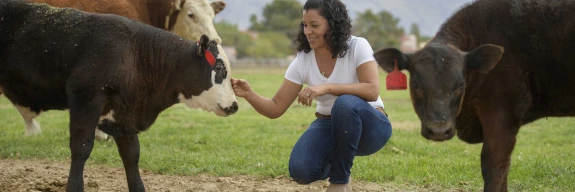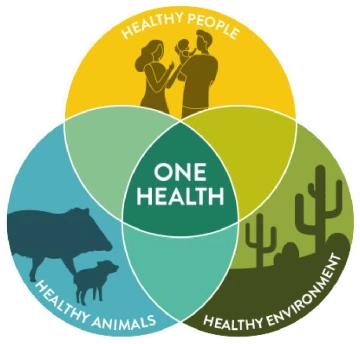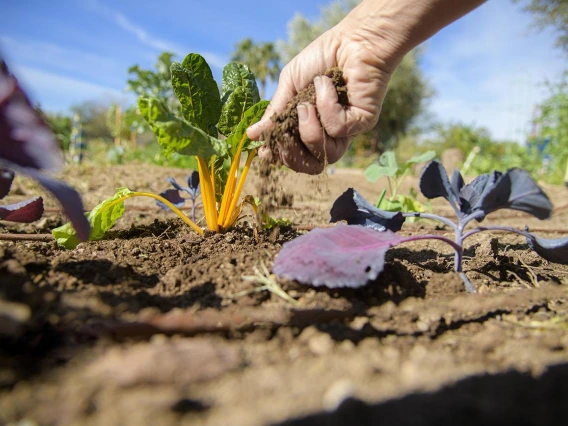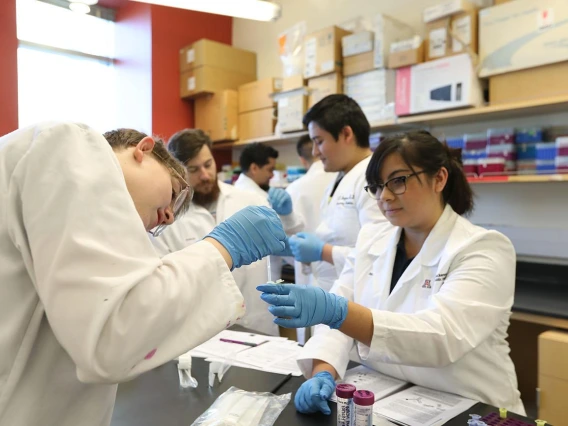
One Health
Achieving optimal health outcomes by recognizing the interconnections among people, animals, plants and their shared environment.
The more we understand about human health, the more we see that it is deeply intertwined with the health of animals and the environment. The concept of One Health recognizes that the health of all living things is woven together as one. One Health research examines human health in the context of deep connections between people and the natural world.

As humanity impacts ecosystems and induces climate change, patterns of disease transmission also change. Diseases that spread between animals and people – known as zoonotic diseases – are common around the globe. The COVID-19 pandemic stands out as a recent example, but the frequency and intensity of zoonotic diseases are on the rise. A One Health workforce is needed to detect, prevent and respond to infectious diseases, epidemics and pandemics in the U.S. and around the world. Similarly, a One Health workforce can play instrumental roles in solving problems of air and water pollution, climate and health, antibiotic resistance, and food and water security.
At the University of Arizona Health Sciences, Frank von Hippel, PhD, is leading an initiative that leverages the ideas and skills of our researchers and students to engage impacted communities with One Health solutions.
We are bringing researchers, students and communities together to find solutions to complex health problems.
One Health simultaneously addresses problems in human, animal and environmental health. At the University of Arizona Health Sciences, we are developing a skilled workforce for key segments of the Arizona economy, including in agriculture and health care, as we enhance One Health programs that improve health outcomes and strengthen rural and urban economic opportunities.




